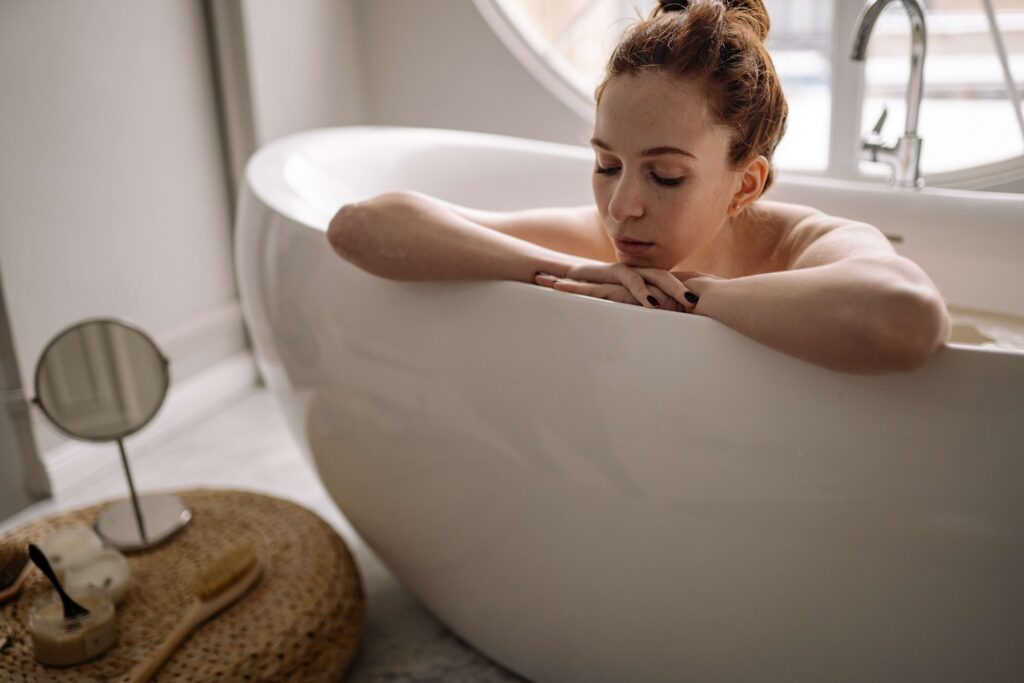Most of us spend a decent amount of our daily time on personal hygiene, from brushing our teeth to styling our hair. How often do we think about our sleep hygiene, however? Probably not nearly as much. Sleep hygiene can impact our health and how we feel throughout the day, so it’s essential to understand what good sleep hygiene is and how to implement it. Keep reading for tips to improve your sleep routine.
As Denver-based sleep coaches, our team at Sleepably knows the value of a healthy routine. We’ve helped countless children and adults nationwide experience healthy restorative sleep. Though techniques vary based on the individual’s specific sleep problems, we usually start by creating healthy sleep habits and optimizing their sleep environment. You’ll be amazed at how much easier it is to wind down at night if you practice good sleep hygiene. Sleep hygiene is not a cure-all for insomnia, so contact us today if sleep is a nightly struggle for you.
What is Sleep Hygiene?
Sleep hygiene is a set of habits and practices that promote good sleep. Good sleep is essential for overall health and well-being, and sleep hygiene can help you get the most out of your slumber.
Several different factors contribute to optimal sleep hygiene. For example, creating a dark, quiet, and cool environment in your bedroom can help promote better sleep. Establishing a regular sleep schedule can also be helpful, as can avoiding caffeine and alcohol before bed.
Sleep hygiene is important for everyone, but it can be especially beneficial for people who struggle with insomnia or other sleep disorders. By following good sleep hygiene practices, you can help improve the quality and quantity of your sleep.
Why is Sleep Hygiene Important?
As we mentioned, sleep is essential for overall health and well-being. Getting enough quality sleep can help improve your mood, boost your immune system, and protect your mental health.
Sleep deprivation can have several negative consequences. For example, it can make you more prone to accidents, impair your cognitive function, and increase your risk of developing chronic health conditions like obesity, heart disease, and type 2 diabetes. Practicing good sleep hygiene can help you avoid the negative consequences of sleep deprivation.
Signs of Poor Sleep Hygiene
How can you know if you have poor sleep hygiene? If you regularly struggle to fall asleep or stay asleep, if you wake up feeling exhausted, or if you find yourself relying on caffeinated beverages to get through the day, poor sleep hygiene may be to blame.
Other signs of poor sleep hygiene include restless nights spent tossing and turning, waking up frequently throughout the night, and difficulty concentrating during the day. If you experience any of these signs regularly, take a closer look at your sleep habits and see if there are any changes you can make.
How to Improve Sleep Hygiene
You can do several different things to improve your sleep hygiene, but it may take some trial and error to see what works best for you. Ideal sleep hygiene is about making quality sleep feel more automatic, so try incorporating a few of these tips into your pre-bed routine and adjusting as needed.
Set a Sleep Schedule
Establishing a regular sleep schedule is one of the best ways to ensure you’re getting enough sleep. A regular sleep schedule helps regulate your body’s natural sleep-wake cycle, making it easier to fall asleep and stay asleep throughout the night. It can also help improve your mood, cognitive function, and immune system.
If you need to adjust your sleep or wake-up times, do so gradually to avoid messing up your schedule.
Optimize your Bedroom
Creating a dark, quiet, and cool environment in your bedroom can help promote better sleep. Consider investing in blackout curtains or an eye mask to block out light, and consider using a white noise machine to drown out any disruptive sounds.
You should also aim to keep your bedroom at a comfortable temperature — somewhere between 60 and 67 degrees Fahrenheit is ideal. By making a few simple changes to your bedroom, you can create a space that’s more conducive to sleep.
Avoid Caffeine and Alcohol before Bed
Caffeine is a stimulant that can interfere with sleep, so it’s best to avoid caffeine in the evening. And while alcohol may make you drowsy at first, it can disrupt your sleep later in the night. So it’s best to avoid alcohol before bed, too. If you do need a nighttime beverage, try decaffeinated herbal tea instead. Chamomile tea, in particular, is known for its calming effects.
Create a Nightly Routine

Establishing a bedtime routine can help signal your body that it’s time to wind down for the night. A few minutes of relaxation techniques, such as reading or taking a bath, can help prepare you for sleep and make it easier to fall asleep when you get into bed. Your routine should ideally last 30 minutes to an hour and stay consistent every night.
Focus on Relaxation
When we struggle to fall or stay asleep consistently, we can begin to put pressure on ourselves to sleep better. Unfortunately, this can worsen the problem, so try relaxation exercises instead of concentrating on falling asleep. Progressive muscle relaxation, deep breathing exercises, and guided imagery are all effective ways to promote relaxation and reduce stress.
Mindfulness meditation is another good option. This type of meditation involves focusing your attention on the present moment and staying aware of your thoughts and emotions without judging them.
Be Active during the Day
Exercise has several benefits for sleep. It can help improve sleep quality, increase daytime energy levels, and reduce stress. And while you don’t have to exercise right before bed, being active during the day can help you sleep better at night.
Improve Your Sleep Hygiene with Sleepably
Here at Sleepably, we believe practicing good sleep hygiene is the first step toward transforming your relationship with sleep. If you don’t know where to start, we’ve created a free resource to help. If you sign up for our email list at the bottom of this page, we’ll send you our guide on Creating a Healthy Bedtime Routine. Inside you’ll find guidelines for optimizing your pre-bed routine and a sample routine to try at home. So sign up today to start experiencing better sleep.
